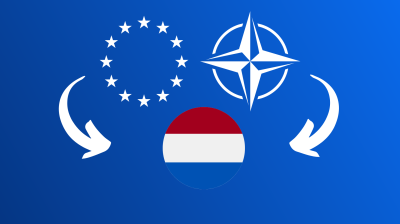Germany’s Zeitenwende and the consequences for German-Dutch defence cooperation
The Russian invasion of Ukraine in February 2022 has led to a paradigm shift in the realm of European security and defence. It triggered an unprecedented wave of defence investments throughout Europe. Ironically, Putin thereby set in motion something that consecutive American presidents could not accomplish: raising defence budgets so that European countries would bear a greater share of the financial burden of Europe’s defence.
One of the most remarkable announcements was the Zeitenwende speech by the German Bundeskanzler Olaf Scholz on 27 February 2022. Russia’s invasion of Ukraine represented a watershed moment in post-Second World War European history and, in response, Scholz announced that Germany would invest an additional € 100 billion in defence. The question, however, remains whether this announcement would lead to an actual turnaround in German security and defence policy and whether the investments will have a structural or temporal nature. Moreover, one may ask which output will be realised with the extra money available.
In a similar vein, the question arises what the implications of Germany’s Zeitenwende are for defence cooperation between Germany and its partners. This applies in particular to the Netherlands, considering the far-reaching integration between the German and Dutch land forces. Germany and the Netherlands have a decades-long history of defence cooperation, bilaterally as well as in NATO and EU operations.
This report addresses the potential consequences of the German Zeitenwende for Germany’s role in European security, and more specifically for the German-Dutch defence cooperation.




